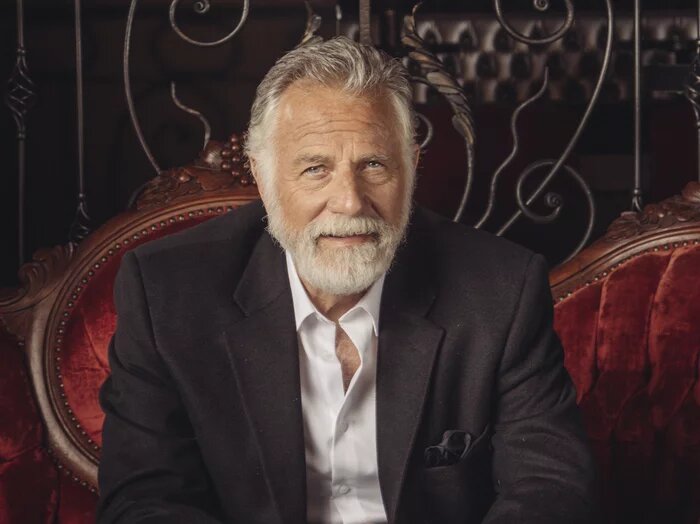Blog
Z Generation, get out the way. Why grandpa may be a marketer’s dream!
By Juan F. Lezama, MBA
Have you ever noticed how much of today’s marketing seems geared towards certain demographics, like Gen Z or millennials? Despite the popularity and importance of these and other “younger” groups to marketers, one key group seems to be overlooked—seniors. Why is this? Some of the reasons might include wanting to leverage hot new trends or desiring to plant the seed of brand loyalty among a younger customer base, but seniors should not be ignored.
According to 2020 Census data, 55.8 million people aged 65 or older comprised 16.8 percent of the US population. Senior citizens tend to have more free time (to see/hear our marketing!) and have substantial buying power to spend on products and services. Additionally, they represent a significant and involved segment of our overall population, as they often participate in things like voting and donating to charities. We also must remember that they endured various challenges, including recessions, wars, and obstacles in their own lives through the years. For these reasons and more, seniors deserve to be celebrated and included.
In my opinion, companies often make a mistake by not directing more of their marketing efforts toward seniors, but some brands do focus on or incorporate the older population. A prime example here is the immensely popular and very recognizable campaign by Dos Equis, “The Most Interesting Man in the World.” The campaign featured a confident, sophisticated character first played by actor Jonathan Goldsmith, who enjoyed an enviable run of about nine years, ending when he was 77. The ads were fun to watch and featured catchy lines, such as “I don’t always drink beer, but when I do, I prefer Dos Equis” and “Stay thirsty, my friends.” This campaign did a tremendous job of creating and leveraging a character that connected with a vast audience and substantially grew revenue, resulting in total sales growth since 2007 up to 34.8 percent.
Sure, the Dos Equis campaign achieved results that many marketers may only dream about, but incorporating or targeting seniors in communications has the potential for any brand to tap into a whole new segment of people and business. Take a look at the following:
- The media is always talking about millennials but do seniors have discretionary money to spend?
A lifetime of work, saving, and investing, coupled with social security and retirement plan payments, gives many seniors a financial edge. In fact, a report states that Americans aged 70 and up own 30 percent of the country’s wealth, while those under 40 account for less than 7 percent. Bank of America data indicates the credit and debit card spending growth of older generations outpaced younger groups in 2023 and also suggests the 59+ group are the only ones increasing consumer spending year-over-year. This data page also mentions that this spending may continue due to less exposure to high-interest rates and housing costs.
- What are some of the characteristics of senior consumers?
Many of us likely have some experience with an older parent or grandparent who could be more tech-savvy. Obviously, their level of comfort and tech know-how can affect how and where they shop. Recent data shows that baby boomers aren’t totally resistant to purchasing online but have the highest preference for in-store buying. Baby boomers and seniors also had the lowest percentage of Amazon Prime usage in 2022. The pandemic drove many people to shop online, including the 65+ crowd, and this increased usage should be reflected in marketing and the shopping experience. For instance, as some companies shift away from providing telephone customer service, the prevalence of electronic communication (email, DM, chatbots) could be a turnoff for some seniors, as only 35 percent of consumers ages 45–75 favor digital over phones when getting help with a product or service question.
- What are some successful ideas for targeting older consumers?
I prefer to stay simple and straightforward when marketing to older generations. Keep in mind these customers may have vision and/or hearing difficulties, may not be efficient with certain technologies or page layouts, can have increased online privacy concerns, and may not really like technology that much to begin with. These are just some things to consider when dealing with these specific customers. Here are a few tips:
- Make layouts clean, simple, and easy to navigate. Finding and buying something online should not be a complex, confusing process.
- Use font sizes and styles that are easy to read. If text is difficult to read, an older consumer may get frustrated quickly.
- Don’t overlook YouTube, as Google says one in three boomers use YouTube to learn about a product or service.
- Make the customer feel at ease about making a purchase and sharing their information.
- Offer a telephone contact option and, if possible, consider ways to engage older customers on a personal, face-to-face level, such as attending events or shows.
- Consider including older people in communications or even using a “Grandfluencer.”
At Lezama Consulting USA, we have learned that seniors may be more receptive to in-person engagement and have successfully executed campaigns directed at them. Currently, we are working with a non-profit client that provides health services to low-income seniors in the San Francisco Bay Area. This campaign partners with local churches that allow our client to engage face-to-face and explain the benefits of their health programs. In our view, while many organizations are looking to save money by cutting in-person engagement or phone communication with consumers, seniors often appreciate the more traditional approach. Marketers who understand seniors and the importance of engaging with them open up an opportunity to capitalize on this crucial niche market, allowing their customers to prosper!


